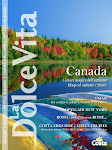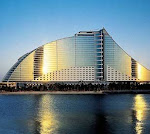The threat from terrorism is low. But you should be aware of the global risk of indiscriminate terrorist attacks which could be against civilian targets, including places frequented by foreigners.
Visas are required to enter, or travel through, Belarus. This includes anyone travelling by train on popular routes such as Warsaw-Moscow and St Petersburg-Kiev.
There are strong penalties for possession or use of drugs and you should avoid taking photographs of military or government installations.
You must register your stay with the Belarus authorities if you intend to remain in the country for more than three days.
We strongly recommend that you obtain comprehensive travel and medical insurance before travelling. You should check any exclusions, and that your policy covers you for all the activities you want to undertake.
Political Situation
Belarus is governed by a strong Presidential system with security forces loyal to it. Historically the authorities have shown little tolerance for their opposition counterparts. This has often been reflected in the sometimes heavy-handed use of the security forces to disperse or intimidate opposition events. You should therefore avoid any demonstrations or rallies.
Local Travel
A bomb exploded at the Independence Day celebration concert on the night of 3-4 July 2008, injuring around 50 people. An official investigation is under way. Bombings are extremely unusual in Belarus, but you should take care at events where large number of people are gathered. Suspect packages have also been found on the underground in the weeks following the bombing. Underground stations were evacuated and the packages proved to be harmless. Nevertheless, you should exercise caution when travelling on public transport.
Road Travel
When travelling by private vehicle, you must be able to produce ownership documents or a letter of "power of attorney" at Custom's offices at border crossings. Only originals of these documents are accepted. You must have third party car insurance or you may get an “on-the-spot” fine. But you can only buy this when entering Belarus. Motorists should enquire at Customs’ border offices for information.
Drivers of foreign vehicles must pay a fee to use Belarus' highways. Payments are collected at border checkpoints and will vary according to the length of stay.
The quality of driving in Belarus is erratic. Belarus' "A-class" highways are in average to good condition. The condition of "B-class" roads varies considerably and some are impassable for periods in winter. Drivers should note that road works and potholes are usually poorly marked. Pony and trap combinations are a specific hazard for drivers in rural unlit areas.
You should observe the speed limit at all times. The standard speed limit is 60 kph (37 mph) in built up areas; 90 kph (55 mph) outside built up areas; and 100 kph (62 mph) on motorways (Brest-Moscow). Visiting motorists who have held a driving licence for less than two years must not exceed 70 kph (43 mph). The authorities operate a nil-tolerance policy in respect of drink driving.
Motorists should be aware that there may be long queues at the border, and that customs and immigration can be lengthy and bureaucratic. You should ignore “private facilitators” who offer to help travellers pass through checkpoints and border crossings. There are police checkpoints on routes throughout the country. Drivers should stop at these when instructed, and have the vehicle documentation to hand, otherwise you risk a fine and delay.
Motorists entering Belarus should ensure that they do not overstay the temporary import terms for their vehicles. Violation of the exit deadline may result in confiscation of your vehicle at the Belarusian border or if stopped at an in-country police checkpoint.
Air Travel
Some local airlines do not observe proper maintenance procedures. For your safety, where possible, you should fly directly to your destination on an international flight originating outside the former Soviet Union and Central Asia.
Local laws and customs
Belarus has severe penalties for drugs-related crimes. The penalties for possession of drugs range from fines to up to five years imprisonment. Large-scale drug-related offences can result in imprisonment of between seven and 15 years.
Homosexual relationships are permitted under Belarusian law. However, Belarus remains a conservative society and the gay/lesbian scene is very low profile. Few homosexuals openly declare themselves.
You should avoid taking photographs of all government buildings, military installations and uniformed officials. You should also be aware that you could be fined for jaywalking.
Visas
Visas are required to enter or transit Belarus. This includes anyone travelling by train on popular routes such as Warsaw-Moscow and St Petersburg-Kiev. If you attempt to transit Belarus without a visa, the border authorities will send you to Minsk to obtain the appropriate visa. You may also be required to pay a fine of up to $300 and you may face deportation. Belarusian diplomatic offices and consulates issue visas.
Passport validity
Before setting off, you should ensure that your passport has at least six months’ validity and two unused pages.
Registration
Anyone staying more than three days in Belarus must register with the local police office (OVIR) in the district in which they are staying. If you are staying in a hotel this will be arranged by the hotel. If you are not staying in a hotel this must be organised by your host. There are fines for not registering in time. If arriving at the weekend the earliest you will be able to register is Tuesday. Tuesday will count as the first of the three days.
Since February 2006, you need to complete a migration card to enter Belarus. Part B of the card will be stamped on arrival and should be retained. You will need to return it when leaving the country. The migration card must also be stamped at the local OVIR. This is done at the same time as registration. If you are staying in a hotel, they should do this for you. You should state on the migration card the period that you intend to stay in Belarus. If you decide to stay longer than the period stated, you should ensure you extend the validity of the migration card (and your visa if necessary) at OVIR. A new migration card was introduced on 1 November 2006, which is common to Russia and Belarus. The format and procedures remain the same.
Declaration of currency and goods
You must complete a currency and goods declaration form on entering Belarus. This must be completed accurately and must be stamped on entry by a Customs Officer. You will not be allowed to take out from Belarus more currency than you originally declared on the currency declaration form on entry to Belarus. You should keep these forms for the duration of your visit. When leaving Belarus you will have to complete a new form but you should also have the original form to hand. If you do not do so, your journey may be delayed and you may be fined.
Travelling with children
Single parents or other adults travelling alone with children should be aware that some countries require documentary evidence of parental responsibility before allowing lone parents to enter the country or, in some cases, before permitting the children to leave the country. Children of Belarusian parentage, regardless of where they were born or any other nationality they may have, are required to have a Belarusian travel document to travel to Belarus.
Insurance
We strongly recommend that you obtain comprehensive travel and medical insurance before travelling. You should check any exclusions, and that your policy covers you for the activities you want to undertake.
Money
Sterling is not widely accepted for exchange into Belarusian Roubles. We advise that you carry a mix of US Dollars and Euros. Ensure you have enough money for the duration of your stay.
The number of ATMs is steadily increasing in major cities. Credit cards are not widely used but can be used to withdraw cash at major hotels and banks. Some large stores and restaurants will take them.
Only exchange foreign currency at Government licensed booths. These can be found in or near major stores, hotels, banks and all shopping centres. Non-compliance can result in fines and/or arrest.
Passports
The British Embassy in Minsk does not issue passports. Applications for new passports are accepted in Minsk for forwarding to the British Embassy in Moscow for processing, but this takes at least four weeks. If you use a courier you will have to pay the cost.













